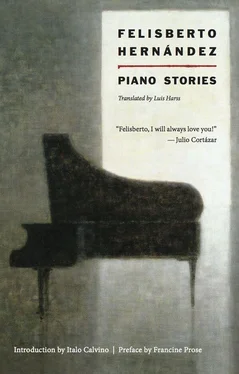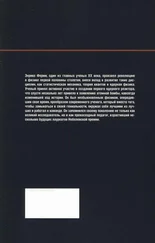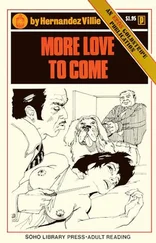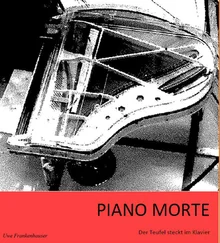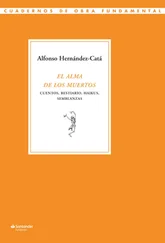Felisberto Hernandez - Piano Stories
Здесь есть возможность читать онлайн «Felisberto Hernandez - Piano Stories» весь текст электронной книги совершенно бесплатно (целиком полную версию без сокращений). В некоторых случаях можно слушать аудио, скачать через торрент в формате fb2 и присутствует краткое содержание. Год выпуска: 2014, Издательство: New Directions, Жанр: Современная проза, на английском языке. Описание произведения, (предисловие) а так же отзывы посетителей доступны на портале библиотеки ЛибКат.
- Название:Piano Stories
- Автор:
- Издательство:New Directions
- Жанр:
- Год:2014
- ISBN:нет данных
- Рейтинг книги:4 / 5. Голосов: 1
-
Избранное:Добавить в избранное
- Отзывы:
-
Ваша оценка:
- 80
- 1
- 2
- 3
- 4
- 5
Piano Stories: краткое содержание, описание и аннотация
Предлагаем к чтению аннотацию, описание, краткое содержание или предисловие (зависит от того, что написал сам автор книги «Piano Stories»). Если вы не нашли необходимую информацию о книге — напишите в комментариях, мы постараемся отыскать её.
Piano Stories
Piano Stories — читать онлайн бесплатно полную книгу (весь текст) целиком
Ниже представлен текст книги, разбитый по страницам. Система сохранения места последней прочитанной страницы, позволяет с удобством читать онлайн бесплатно книгу «Piano Stories», без необходимости каждый раз заново искать на чём Вы остановились. Поставьте закладку, и сможете в любой момент перейти на страницу, на которой закончили чтение.
Интервал:
Закладка:
“Horace, you’re being a brat!”
He apologized all around and soon everyone was having fun again. But when he was serving his wine from France, over dessert, Mary saw a black stain — the wine he was pouring outside the glass — growing on the tablecloth, and, trying to rise, clutching at her throat, she fainted. They carried her into the bedroom, and, when she recovered, she said she had not been feeling well for days. He sent at once for the doctor, who said it was nothing serious but she had to watch her nerves. She got up and saw off her guests as if nothing had happened. But, as soon as they were alone, she said:
“I can’t stand this life any more. You were messing with that girl right under my nose.”
“But, my dear. .”
“And I don’t just mean the wine you spilled gaping at her. What were you up to in the yard afterward when she said, ‘Horace, stop it’?”
“But, darling, all she said was ‘a boring topic.’”
They made up in bed and she fell asleep with her cheek next to his. But, after a while, he turned away to think about her illness. And the next morning, when he touched her arm, it was cold. He lay still, gazing at the ceiling for several grueling minutes before he managed to shout: “Alex!” At that moment the door opened and Mary stuck her head in — and he realized it was Daisy he had touched and that Mary had put her there, next to him, while he slept.
After much reflection, he decided to call his friend, Frank, the doll manufacturer, and ask him to find a way to give Daisy some human warmth.
Frank said:
“I’m afraid it’s not so easy, dear boy. The warmth would last about as long as a hot-water bottle.”
“All right, I don’t care. Do what you want, just don’t tell me. I’d also like her to be softer, nicer to touch, not so stiff. .”
“I don’t know about that, either. Think of the dent you’d make every time you sank a finger in her.”
“Well, all the same, she could be more pliant. And, as for the dent — that might not be such a bad idea.”
The day Frank took Daisy away, Horace and Mary were sad.
“God knows what they’ll do to her,” Mary kept saying.
“Now then, darling, let’s not lose touch with reality. After all, she was only a doll.”
“Was! You sound as if she were dead. Anyway, you’re a fine one to talk about losing touch with reality!”
“I was just trying to comfort you. .”
“And you think dismissing her like that is the way to do it? She was more mine than yours. I dressed her and told her things I’ve never told anyone, do you realize? And how she brought us together — have you ever thought of that?”
He was heading for his study, but she went on, raising her voice:
“Weren’t you getting what you wanted with our surprises? Wasn’t that enough, without asking for ‘human warmth’?”
By then he had reached the study and slammed the door behind him. The way she pronounced “human warmth” not only made him feel ridiculous but soured all the pleasures he was looking forward to when Daisy returned. He decided to go for a walk.
When he got back, Mary was out, and when she returned they spent a while hiding the fact that they were unexpectedly glad to see each other.
That night he did not visit his dolls. The next morning he was busy. After lunch he and Mary strolled in the garden. They agreed that Daisy’s absence was temporary and should not be made too much of. He even thought it was easier and more natural to have his arm around Mary instead of Daisy. They both felt light and gay and enjoyed being together. But later, at dinnertime, when he went up to the bedroom for her, he was surprised to find her there alone. He had forgotten for a moment that Daisy was gone, and now her absence made him strangely uneasy. Mary might well be a woman without a doll again, but his idea of her was no longer complete without Daisy, and the fact that neither she nor the house seemed to miss Daisy was like a kind of madness. Also, the way Mary drifted back and forth in the room, apparently not thinking of Daisy, and the blankness of her expression, reminded him of a madwoman forgetting to dress and wandering naked. They went down to dinner, and there, sipping his wine from France, he stared at her in silence, until finally it seemed he caught her with Daisy on her mind. Then he began to go over what the two women meant to each other. Whenever he thought of Mary, he remembered her fussing over Daisy, worrying about how to get her to sit straight without sagging, and planning to surprise him with her. If Mary did not play the piano — as Frank’s girlfriend did — it was because she expressed herself in her own original manner through Daisy. To strip her of Daisy would be like stripping an artist of his art. Daisy was not only part of her being but her most charming self, so that he wondered how he ever could have loved her before she had Daisy. Perhaps in those days she had found other means or ways to express that side of her personality. Alone in the bedroom, a while back, without Daisy, she had seemed insignificant. Yet — Horace took another sip of his wine from France — there was something disquieting about her insignificance, as if Daisy had still been there, but only as an obstacle she had put up for him to trip over on his way to her.
After dinner he kissed Mary’s cool cheek and went in to look at his glass cases. One of them showed a Carnival scene. Two masked dolls, a blonde and a brunette, in Spanish costumes, leaned over a marble balustrade. To the left was a staircase with masks, hoods, paper streamers and other objects scattered on the steps with artful negligence. The scene was dimly lit — and suddenly, watching the brunette, Horace thought he recognized Daisy. He wondered whether she had been ready sooner than expected and Mary had sent for her as a surprise. Without looking again, he opened the glass door. On his way up the staircase he stepped on a mask, which he picked up and threw over the balustrade. The gesture gave the objects around him physical reality and he felt let down. He moved to the podium, irritated because the noise of the machines and the sound of the piano did not blend. But after a few seconds he turned to the dolls again and decided they were probably two women who loved the same man. He opened the drawer and read the caption: “The blonde has a boyfriend. He discovered, some time ago, that he preferred her friend, the brunette, and declared his love to her. She was also secretly in love with him but tried to talk him out of it. He persisted, and, earlier on this Carnival night, he has told the blonde about her rival. Now the two girls have just met for the first time since they both learned the truth. They haven’t spoken yet as they stand there in a long silence, wearing their disguises.” At last he had guessed the meaning of one of the scenes: the two girls in love with the same man. But then he wondered whether the coincidence was not a portent or sign of something that was already going on in his own life and whether he might not really be in love with Daisy. His mind flitted around the question, touching down on other questions: What was it about Daisy that could have made him fall in love with her? Did the dolls perhaps give him something more than a purely artistic pleasure? Was Daisy really just a consolation in case his wife died? And for how long would she lend herself to a misunderstanding that was always in Mary’s favor? The time had come to reconsider their roles and personalities. He did not want to take these worries up to the bedroom where Mary would be waiting for him, so he called Alex, had him dismiss Walter, then sent him for a bottle of wine from France and sat for a while, alone with the noise of the machines. Then he walked up and down the room, smoking. Each time he came to the glass case he drank some wine and set out again, thinking: “If there are spirits that inhabit empty houses, why wouldn’t they also inhabit the bodies of dolls?” He thought of haunted castles full of spooked objects and furnishings joined in a heavy sleep, under thick cobwebs, where only ghosts and spirits roam, in concert with whistling bats and sighing marshes. . At that moment he was struck by the noise of the machines and he dropped his glass. His hair stood on end as it dawned on him that disembodied souls caught the stray sounds of the world, which spoke through them, and that the soul inhabiting Daisy’s body was in touch with the machines. To shake off these thoughts he concentrated on the chills going up and down his spine. But, when he had settled in his armchair, his thoughts ran on: no wonder such strange things had happened on a recent moonlit night. They were out in the garden, all three of them, and suddenly he started chasing his wife. She ran, laughing, to hide behind Daisy — which, as he well realized, was not the same as hiding behind a tree — and when he tried to kiss her over Daisy’s shoulder he felt a sharp pinprick. Almost at once he heard the machines pounding, no doubt to warn him against kissing Mary through Daisy. Mary had no idea how she could have left a pin in the doll’s dress. And how — he asked himself — could he have been so foolish as to think Daisy was there to grace and adorn Mary, when in fact they were meant to grace and adorn each other? Now, coming back to the noise of the machines, he confirmed what he had been suspecting all along: that it had a life of its own, like the sound of the piano, although they belonged to different families. The noise of the machines was of a noble family, which was perhaps why Daisy had chosen it to express her true love. On that thought he phoned Frank to ask after Daisy. Frank said she was nearly ready, that the girls in the workshop had found a way to. . But at this point Horace cut him off, saying he was not interested in technical details. And, hanging up, he felt secretly pleased at the thought of girls working on Daisy, putting something of themselves into her.
Читать дальшеИнтервал:
Закладка:
Похожие книги на «Piano Stories»
Представляем Вашему вниманию похожие книги на «Piano Stories» списком для выбора. Мы отобрали схожую по названию и смыслу литературу в надежде предоставить читателям больше вариантов отыскать новые, интересные, ещё непрочитанные произведения.
Обсуждение, отзывы о книге «Piano Stories» и просто собственные мнения читателей. Оставьте ваши комментарии, напишите, что Вы думаете о произведении, его смысле или главных героях. Укажите что конкретно понравилось, а что нет, и почему Вы так считаете.
